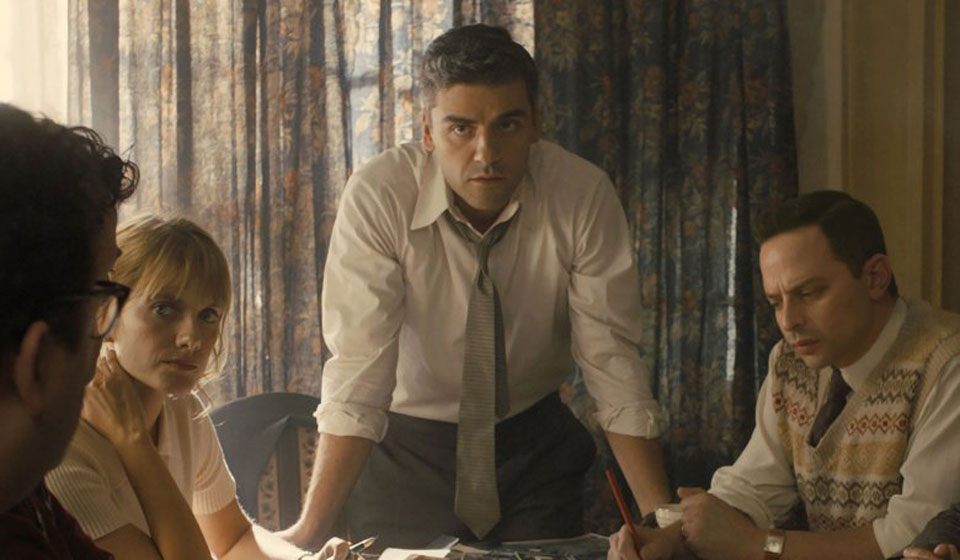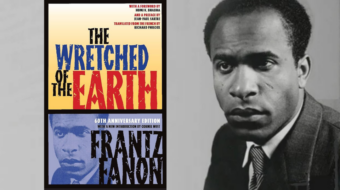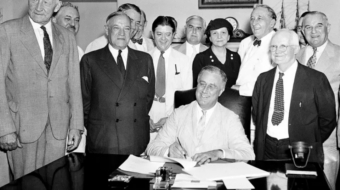
The acting in ‘Operation Finale’ is so outstanding that it needs to be the first thing mentioned in this review. The most powerful performance is given by Oscar Isaac who plays the role of the man who pulls off a job allowing millions of Holocaust victims, their families, and the world to achieve closure in one of the worst horrors ever to have befallen humanity. The takeaway from Finale’s powerful acting and a great plot is not nearly as complete as it could have been, however, had there been some better work by the scriptwriter, Matthew Orton, at a key point in the film.
Isaac plays Peter Malkin, the Israeli agent who finds and captures Adolph Eichmann in 1961 in Argentina. Eichmann was perhaps the most notorious of Nazi war criminals, the architect of what the Nazis called the “final solution” to the so-called Jewish problem – the systematic plan to exterminate every single one of the millions of Jews in Europe.
The film opens with Malkin and a few other Mossad agents closing in on a house in Austria during the Christmas season of 1954. Inside, a man, his wife and their young child are admiring their beautifully decorated tree when there is a knock at the door. Before opening the door, the man hides two beautifully bound, swastika-embossed books behind other manuscripts on a shelf. He is snatched by the Israeli agents as soon as he opens the door and is shot to death as he tries to escape. While he was a Nazi he was not the Nazi Malkin was assigned to get. Malkin, before he leaves the scene, sees the mother and child looking out the window, with the Christmas tree behind them, wondering what happened, as yet unaware that the man of the house was dead. Isaac portrays at this moment a Malkin haunted by what he sees -– a mother and child with a husband and father dead at Christmas.
It’s the first time in the film that we catch a glimpse of the mental torment Malkin is living with. He suffers from recurring flashbacks of things he has witnessed in earlier years. The worst of these involve flashbacks of a woman and her children attacked in a wooded area by Nazi soldiers, a scene of the fearful woman carrying a bundled infant and, worst of all, a scene of the woman hanging dead from a tree. The identity of the woman is concealed from the viewer until the very end of the film in a powerful, moving, and memorable clip.
We leave the house where the Mossad agents apprehended the wrong Nazi and enter a movie theater in Argentina. There, a handsome, blond, Aryan-looking youth named Klaus chuckles out loud when a woman in the film on the screen is exposed by a racist for being an African American passing for white. Klaus and his neo-Nazi friends clearly relish the distress of the African American woman. Sylvia, played by Haley Lu Richardson, is a woman sitting in front of Klaus. She turns around to tell him to quiet down but is attracted to the handsome youth who she doesn’t know is Eichmann’s son. He is attracted to her too although he has no idea she is Jewish. They start dating.
She eventually realizes who Klaus and his father (who he calls his uncle at first) really are and she lets her father know. He informs a Mossad agent and from there the Mossad in Israel go to work on a plan. Malkin, in his head, and the Mossad, as a group, debate whether to just kill Eichmann or capture him and bring him back to Israel. Catch him and bring him to trial is the option they choose.
The plot is amplified by all the main actors. Nick Kroll, as Malkin’s co-agent, provides comic relief to Isaac’s haunting seriousness. Melanie Laurent, who plays a doctor who was Malkin’s ex, is believable as the anesthesiologist on the Mossad extraction team who is there to drug Eichmann so he can be transported from his Argentine hideaway to the airport and then flown to Israel.
Ben Kingsley does a powerful and memorable portrayal of Eichmann. You see in Eichmann both a mild-mannered intellectual who says he did nothing more than love his country, and a monster responsible for the most unimaginable crimes against humanity. In the safe house where the Mossad agents hold him until they can transport him to the airport, Kingsley and Isaac go one on one as Malkin tries to get the mass murderer to sign a form they need for their superiors in Israel to go ahead with a trial. The scene where Malkin shaves Eichmann while the war criminal is tied to a chair has you on the edge of your seat as you can just tell what Malkin wants to do with the razor.
As the two go at it, there are flashbacks of mass killings and piles of bodies wrought by the final solution, putting the lie to Eichmann’s insistence during the interrogation that he was a man who loved his country and who really was nothing more than a functionary putting people on trains – trains, we know, that brought people to their deaths. The flashbacks become more horrific as the interrogation continues. I’m not going to do a spoiler on readers here so I won’t reveal what happens from here on out. I will say, however, that it is at this point in the film that the writer falls short of what he could have done to make sense of the Holocaust to the many who will see this film. “What better place than here?” I asked myself, as I sat watching these flashbacks.
Why not clips of the concentration camps run by the huge corporations as slave labor camps so they could pile up their profits unencumbered by the need to pay any workers? Why not a clip showing how those same corporations profit today as multi-nationals? Why not a flashback of some of the CEO’s wining and dining Hitler and his henchmen? Why not clips of the Vatican emissaries and German bishops who hid and protected Nazi war criminals and how they aided Eichmann’s escape from a post-war jail in Germany, funneling him and others into Argentina in the first place? Why not flashbacks of U.S. officials who helped them out? Why not a clip of Argentina’s right-wing “populist” president Juan Peron meeting with the Nazi war criminals and getting their advice on how to stop communists and other Argentinian leftists?
One movie can’t do everything and what this movie does do – show the inhumanity of the Nazi’s final solution and the humanity of people like Malkin – it does well. But how much better it would be if people could have left the movie theater understanding a bit more about the responsibility of the capitalist system itself for Eichmann, for the Nazis and for the worst crimes in human history. Years ago when I left the concentration camp memorial at Buchenwald in what was then the socialist German Democratic Republic (East Germany) everyone in our group with me left the camp with that understanding. Most of the people leaving the theater with me last Sunday, I fear, left without that understanding. Because the film is so well done many in the theater were moved to tears at the end when they learned the story of the woman haunting Malkin’s memory. It would have been nice if they could have understood more about why it all happened in the first place.










